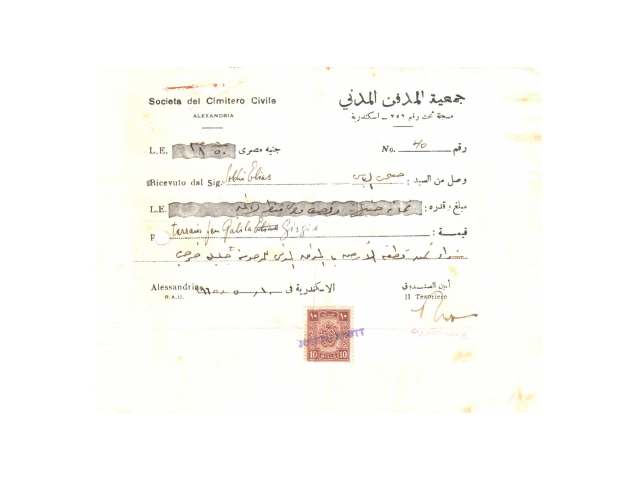
EIPR appeals to the "Supreme Administrative court" over the refusal to allocate cemeteries to non-followers of the three religions in Alexandria
Press Release
The Egyptian Initiative for Personal Rights (EIPR) submitted an appeal before the Supreme Administrative Court in Cairo against the ruling of the Administrative Court in Alexandria refusing to obligate the Alexandria Governorate to allocate cemeteries to the fourth category, other than followers of the three religions. The appeal argued that the ruling violated the constitution and the law and was erroneous in applying the law, and that the right to allocate cemeteries to any group is not limited to followers of recognized religions and may not be limited to one religious group excluding another. It also contradicts previous decisions of the Egyptian state to allocate cemeteries to those who do not belong to any religion or to unrecognized religions and creeds.
On Saturday, February 19, 2022, EIPR lawyers filed lawsuit No. 29171 for the year 68 J before the Supreme Administrative Court in Cairo, challenging the ruling of the Administrative Court of Alexandria in Case No. 7060 of the year 75 J, refusing to oblige the Alexandria Governorate to allocate graves to the fourth category of citizens whose IDs are marked (-) for their religious affiliation, because they are not followers of the three officially recognized religions. The ruling was based on the report of the state commissioners and the opinion of the Islamic Research Academy in Al-Azhar, which recommended refusing to allocate cemeteries to the plaintiffs, "because it leads to discrimination and division, and ruptures the fabric of a society."
The EIPR lawyers argued in the appeal that the opinion of the Al-Azhar Research Academy was not based on evidence from the Islamic shariah, but on a political assessment that. This assessment was contradicted by history, since the Egyptian state had previously allocated cemeteries for those outside the three religions in several governorates in different eras from the mid-nineteenth century until the seventies of the twentieth century. These included the civil cemeteries designated for the burial of “free thinkers” in Cairo and Alexandria, as well as cemeteries belonging to non-recognized religions (like the Baha’i community) in Port Said, Suez and Sharqia. Also, a decision was issued to allocate a plot of land for the Indian embassy to cremate the bodies of the dead Hindus according to their faith. However, all those are no longer available for burial with the exception of a single cemetery for Baha'is in Cairo, which has almost run out of space.
EIPRs lawyers also submitted a receipt issued in 1965 by the “Civil Cemetery Association” in Alexandria, for the price of purchasing a plot of land for the burial of Mrs. Galila Gerges, of Baha’i faith, whose tombstone is still standing today among the remains of the burial ground in the Shatby cemetery in Alexandria carrying Baha'i religious texts. The Civil Cemetery Association operated the cemeteries designated for followers of free faith in Alexandria, which contained the remains of individuals of diverse religions or those not affiliated with any religion.
EIPR had welcomed statements by Ambassador Moushira Khattab, head of the National Council for Human Rights, on Wednesday, February 9, to "Sada-Al-Balad" channel about the importance of upholding the basic rights of the Egyptian Baha'is, including the demand to allocate cemeteries to bury their dead. EIPR stressed that these statements are awaiting enforcement in urgent measures that guarantee the basic rights of citizens of the fourth category of religious diversity, who are not followers of the three religions, Islam, Christianity and Judaism.
For more on the case



